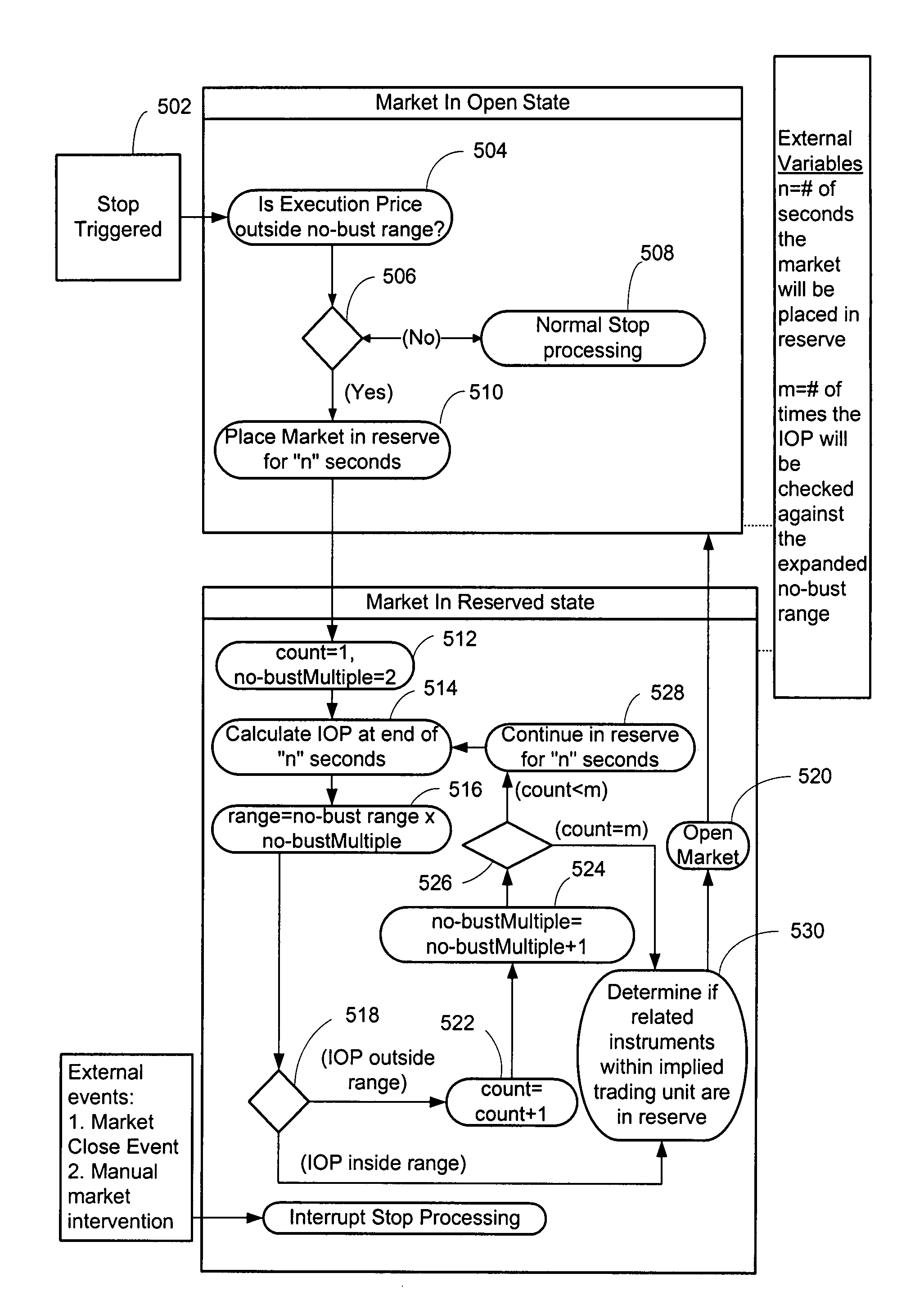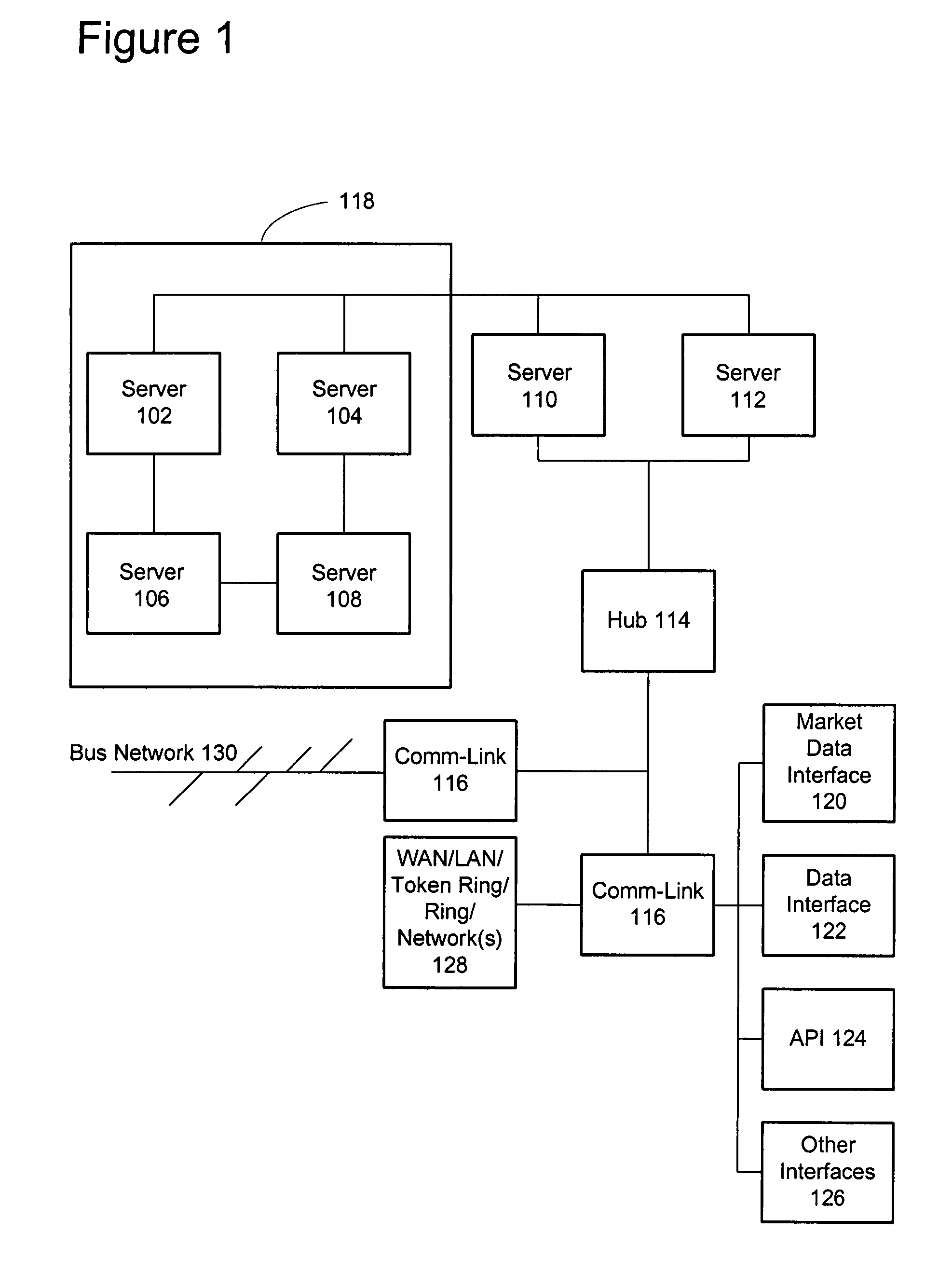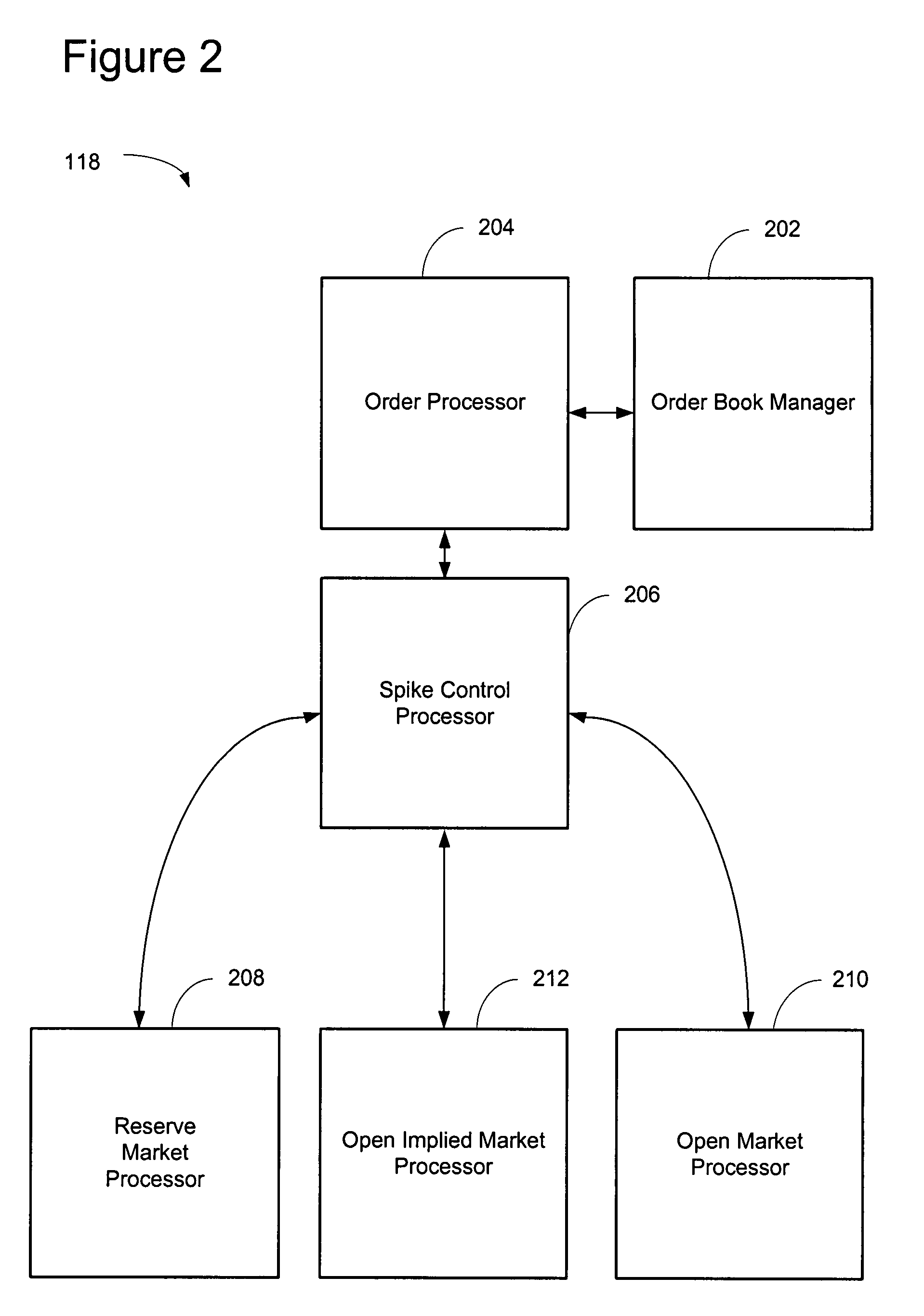Controlling implied markets during a stop loss trigger
a technology of implied markets and triggers, applied in the field of monitoring financial transactions, can solve the problems of increasing adverse effects, rapid processing sequence, and rapid cascading execution of buy or sell stop orders, and achieve the effect of mitigating the spik
- Summary
- Abstract
- Description
- Claims
- Application Information
AI Technical Summary
Benefits of technology
Problems solved by technology
Method used
Image
Examples
Embodiment Construction
[0047]The system mitigates or prevents market spikes due to the triggering, election and trading of conditional orders. The system includes an automated trading engine that performs a verification of a tradable conditional order that is triggered, to ensure that a traded price will not violate a predetermined trade threshold or existing exchange matching rules. If a potential trade price lies outside of the trade threshold, the instrument is placed in a reserved state allowing orders to be entered, modified, and / or cancelled. Implied spreads that are resting on the order book based off or having a common leg with the instrument held in reserve are disabled so only non-implied outright orders can match on the remaining unreserved instruments in the trading unit.
[0048]While an instrument may not trade when it is reserved, an indicative opening price of that instrument may be derived and disseminated to the market. The indicative opening price may reflect the price the instrument would...
PUM
 Login to View More
Login to View More Abstract
Description
Claims
Application Information
 Login to View More
Login to View More - R&D
- Intellectual Property
- Life Sciences
- Materials
- Tech Scout
- Unparalleled Data Quality
- Higher Quality Content
- 60% Fewer Hallucinations
Browse by: Latest US Patents, China's latest patents, Technical Efficacy Thesaurus, Application Domain, Technology Topic, Popular Technical Reports.
© 2025 PatSnap. All rights reserved.Legal|Privacy policy|Modern Slavery Act Transparency Statement|Sitemap|About US| Contact US: help@patsnap.com



